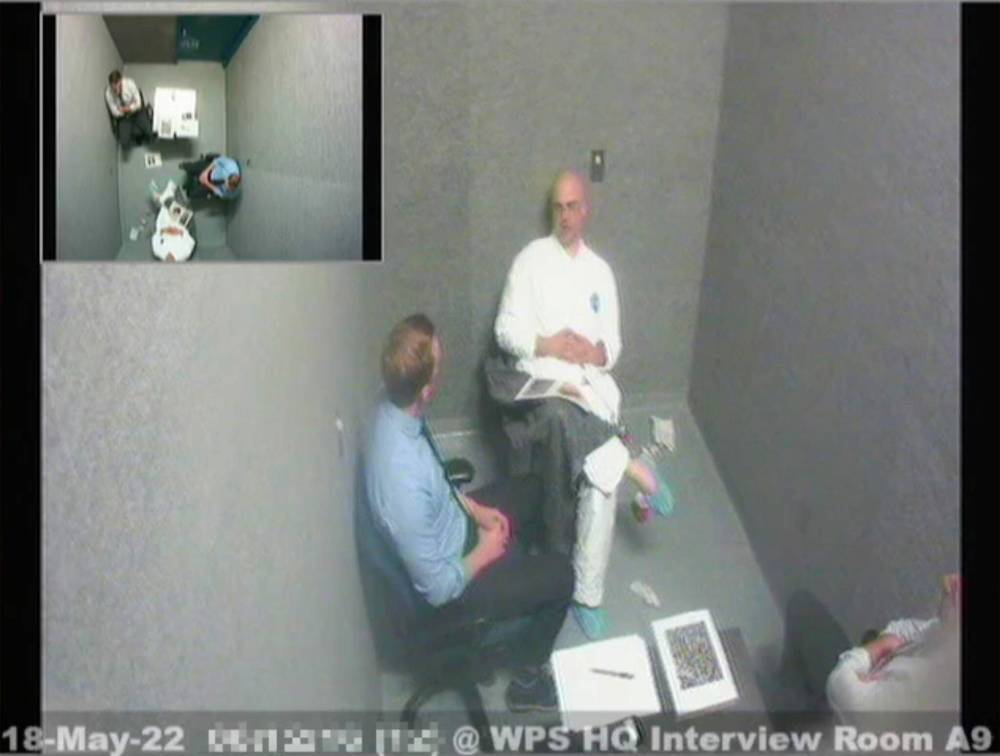Court must hear out NCR defence
Advertisement
Read this article for free:
or
Already have an account? Log in here »
To continue reading, please subscribe:
Monthly Digital Subscription
$0 for the first 4 weeks*
- Enjoy unlimited reading on winnipegfreepress.com
- Read the E-Edition, our digital replica newspaper
- Access News Break, our award-winning app
- Play interactive puzzles
*No charge for 4 weeks then price increases to the regular rate of $19.95 plus GST every four weeks. Offer available to new and qualified returning subscribers only. Cancel any time.
Monthly Digital Subscription
$4.99/week*
- Enjoy unlimited reading on winnipegfreepress.com
- Read the E-Edition, our digital replica newspaper
- Access News Break, our award-winning app
- Play interactive puzzles
*Billed as $19.95 plus GST every four weeks. Cancel any time.
To continue reading, please subscribe:
Add Free Press access to your Brandon Sun subscription for only an additional
$1 for the first 4 weeks*
*Your next subscription payment will increase by $1.00 and you will be charged $16.99 plus GST for four weeks. After four weeks, your payment will increase to $23.99 plus GST every four weeks.
Read unlimited articles for free today:
or
Already have an account? Log in here »
Hey there, time traveller!
This article was published 25/05/2024 (591 days ago), so information in it may no longer be current.
It is inevitable that any time an accused person — particularly someone accused of a violent crime — argues they were not criminally responsible for their actions, the justice system itself will be on trial. And so it is in the case against Jeremy Skibicki.
The city, and indeed the country, are watching closely as Skibicki and his lawyers prepare to argue that he was not criminally responsible (NCR) for the 2022 murders of three Indigenous women — Rebecca Contois, Marcedes Myran and Morgan Harris — and a fourth unidentified woman known as Buffalo Woman.
The introduction of the NCR defence in this case is unusual, for many reasons.

SUPPLIED
Jeremy Skibicki, right, is interrogated by Det. Greg Allan. Regardless of its likelihood of success, the court must hear out the not-criminally-responsible defence Skibicki’s lawyers are preparing to make.
The NCR defence comes from Sec. 16 of the Criminal Code, which states that no accused person “is criminally responsible for an act committed or an omission made while suffering from a mental disorder that rendered the person incapable of appreciating the nature and quality of the act or omission or of knowing that it was wrong.”
There are caveats, of course. The court presumes a person was not suffering from a mental disorder until it is proven on the balance of probabilities. And the burden of proof of the disorder rests with the party that raises the issue — in this case Skibicki and his legal team.
Is the NCR defence applicable in the Skibicki case? There is a general consensus in the psychiatric world that while serial killers often suffer from a range of mental disorders — including psychopathy — it is rare for these disorders to prevent the accused from knowing what they were doing was wrong.
Serial killings often take place over an extended period of time, and involve some measure of planning, not only in the commission of the killings but also in the concealment of them. These kinds of behaviours do not fit easily into the NCR defence.
A quick review of NCR cases, and those involving Canadian serial killers, can help to explain the subtle lines of demarcation on this point.
Vincent Li, who beheaded a man on a Greyhound bus bound for Winnipeg in 2008, was found to be NCR. It was determined that Li, who lived for many years with undiagnosed schizophrenia and suffered with disembodied voices and hallucinations, was so disconnected from reality he could not control his violent actions.
On the other hand, while nearly all of this country’s most famous serial killers — including Robert Pickton and Paul Bernardo — pleaded not guilty at their trials, they did not use the NCR defence largely because of the proven facts that described their evil, methodical actions.
The psychiatric nuances that distinguish disorders like schizophrenia and psychopathy will be of little comfort to the families of the victims Skibicki has admitted to killing, or to the general public who may be outraged the accused is attempting to mitigate his responsibility for the slayings. However, the fact the NCR defence has been raised in this case does not invalidate it as a legal concept.
This is an age where awareness of mental health is much more acute. Corporately funded awareness campaigns are trying to destigmatize mental illness and prompt more sympathy and support from the general public. Each year, an increasing number of celebrities of all descriptions volunteer to describe their own experiences with mental illness.
Although they are on the far end of the mental disorder spectrum, the illnesses that truly make someone NCR for a violent crime need to be recognized and treated differently by the justice system.
It is unclear as of yet whether Skibicki’s attempt to employ the NCR defence will be successful. But either way, NCR must continue to be seen as a valid defence.










